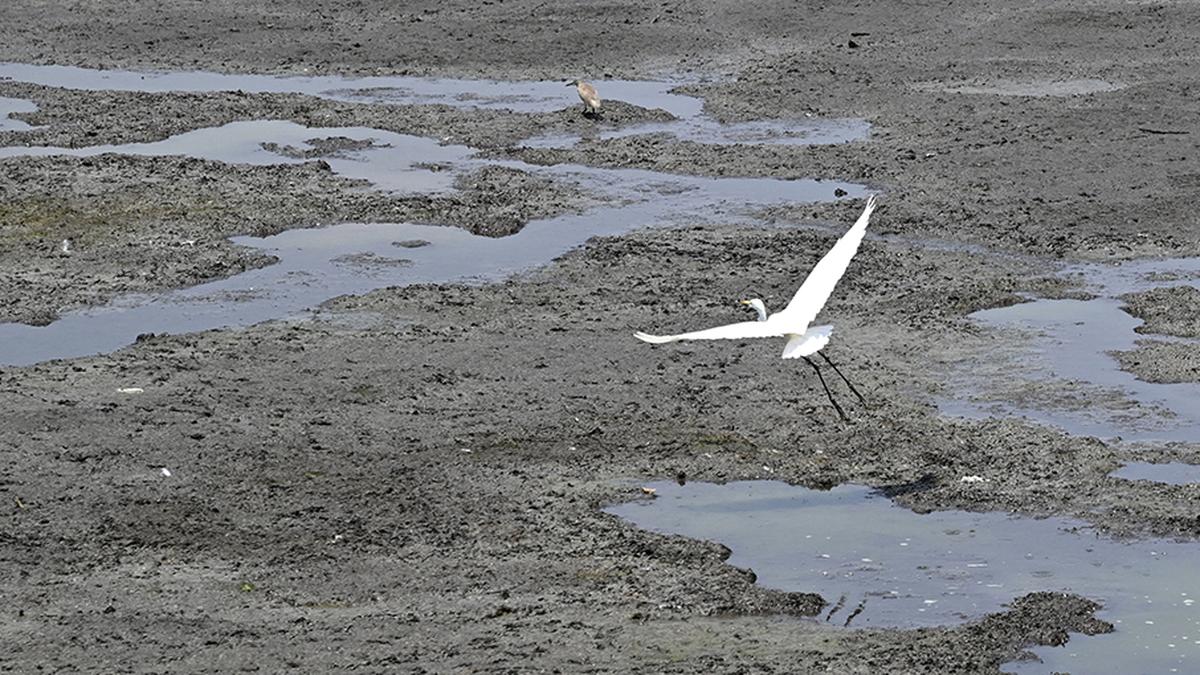
Hindutva and caste calculations overtake real issues of drought and backwardness in north Karnataka
The Hindu
14 constituencies in northern and central Karnataka face drought, regional imbalances, communal narratives, and political realignment in upcoming elections.
Under a scorching sun and amidst a severe drought, 14 constituencies in northern and central Karnataka are going to the polls on May 7. Complaints about regional imbalances and unkept promises — especially related to irrigation projects — are an undercurrent, though constantly overshadowed by communal narratives and the blame game between parties in the last leg of the campaign.
The emergence of right-wing activism in the aftermath of the 1992 Idgah riots in Hubballi and the subsequent political realignment in the region, with members of the Janata Parivar shifting to the saffron party, has severely affected the Congress’ prospects in the region. The party’s efforts to regain its glory have not yielded big results yet.
In the 2004, 2009, and 2014 elections, the Congress never got more than three seats out of the total 14 seats in northern and central Karnataka. Despite aligning with the Janata Dal (Secular) in 2019, the Congress was washed out in the region, with the BJP making a clean sweep. Under the changed political equations, the JD(S) has tied up with the BJP this time around, but is not contesting any seats in this region.
The BJP candidates in the 14 constituencies are clearly heavily dependent on Prime Minister Narendra Modi’s popularity and, in certain pockets, the Hindutva agenda. The Congress, on the other hand, is trying to minimise its effect by using its “new guarantee card” and highlighting the “meagre drought relief” for which it had to approach the Supreme Court.
North Karnataka was broadly categorised into Hyderabad Karnataka and Bombay (Mumbai) Karnataka, now renamed Kalyana Karnataka and Kittur Karnataka, respectively. The change in name has not changed the issues. For instance, out of 39 taluks across Karnataka identified as “most backward” by the D.M. Najundappa Committee report on regional imbalances, 26 are from north Karnataka. The situation in these taluks has not changed much. Important issues, such as the promise of making the Upper Krishna Project a national project, still remain a dream, and the much-debated Kalasa Banduri Nala project that aims to divert water from Mahadayi basin to the Malaprabha basin remains a non starter.
However, these issues are not being debated much in the run up to the Lok Sabha election. A host of national and State-level leaders have addressed scores of rallies across this region, but very few have spoken about the debilitating drought and water scarcity that the region has been suffering from since the 2022 kharif season. Any debate on the lack of industries or other means of employment in north Karnataka, compared to the south, is also not to be heard.
The issues that are being raised instead, are the castes and sub castes of candidates, the murder of student Neha Hiremath on a college campus in Hubballi that has been used to set a communal narrative, and the Bengaluru cafe blast case, used to speak of wider threats to national security. Over the last few days, though the JD(S) is not a big force to reckon with in most parts of north Karnataka, the alleged sex scandal involving JD(S)leader Prajwal Revanna has somewhat shifted focus from the Neha Hiremath murder.

The girl, who was admitted to Aster CMI Hospital with alarming breathlessness and significant pallor, was diagnosed with Wegener’s Granulomatosis (now known as Granulomatosis with Polyangiitis or GPA), a rare autoimmune condition that causes spontaneous bleeding in the lungs, leading to acute respiratory failure.

ACB files case against IPS officer N. Sanjay in Andhra Pradesh. The official is accused of manipulating the tender processes for awarding contract for development and maintenance of AGNI-NOC portal, and conducting awareness meetings for SC/STs. It is alleged that the total value of properties stolen, or involved in the case is estimated at ₹1,75,86,600.









